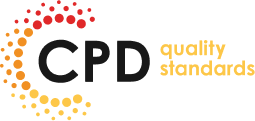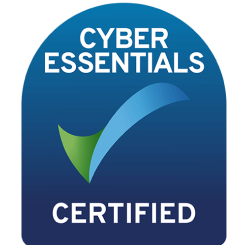How to Become a Certified Autism Specialist


![]() 29 minutes
29 minutes

24136 Viewers
Summary:
A Certified Autism Specialist plays a crucial role in supporting individuals with autism by offering tailored therapeutic, educational, or medical services. Autism, a spectrum disorder, affects social skills, behavior, and communication, and varies greatly between individuals. Becoming a Certified Autism Specialist involves choosing a relevant training path, such as degrees in autism, psychology, or special education, followed by specialized training and certification. Key responsibilities include creating personalized treatment plans, providing support in educational settings, and managing client caseloads. Roles for these specialists are found in schools, healthcare, and private practice, offering opportunities to improve the quality of life for autistic individuals.
It is estimated that there are currently around 700,000 people in the UK, including 1 in 100 children, who have some sort of autism diagnosis. With the numbers of diagnosed autistic people rising all the time, it’s vital to ensure that we have enough Certified Autism Specialists available in order to support those with autism in their everyday lives.
With autistic children having to wait a long time to get their autism diagnosis, it’s vital that the support is waiting for them as soon as they need it, and that’s where Certified Autism Specialists come in.
If you’re interested in working with people with autism and want to know how to become a Certified Autism Specialist, then this article is for you! Explore everything involved in how to become a Certified Autism Specialist and see if it’s the dream career choice for you!
Autism, or autism spectrum disorder, is a broad range of conditions which can affect people of all ages. These conditions usually present themselves as challenges with social skills, repeating certain behaviours, speech and no verbal communication. Autism can affect everyone differently and not everyone will exhibit the same signs or symptoms or the same level of severity of autism.
Autism is not a mental illness, but rather something you are born with. Autism causes your brain to function differently from other people’s, and therefore it changes the way autistic people interact with the world.
There is no cure for autism, meaning if you have autism, you will have it for the rest of your life. However, there are a range of support methods available to help people with autism cope with the challenges they may face in everyday life.
While there are a range of things which could cause autism, there is no one cause for it, and no explanation as to why it occurs in humans. However, it affects people across the entire population of Earth.
If you have autism, you are more likely to have other conditions as well such as ADHD, dyslexia, anxiety, depression, and epilepsy.
What does a Certified Autism Specialist Do?
While there are many different occupations which will work with autistic people in their workplace, exploring how to become a Certified Autism Specialist shows a dedicated commitment to helping people with autism get the help and support they need to live their lives and get additional support when they need it.
Certified Autism Specialists offer a range of services and support for people with autism. As autism can present differently in everyone, and everyone can experience a range of different symptoms, this means Certified Autism Specialists need to be skilled in providing the right type of support for each person they work with. There is no ‘one size fits all’ approach to autism support, and so Certified Autism Specialists need to be able to build strong relationships with the people they work with in order to assess the type of help they need.
Certified Autism Specialists are a behavioural modification counsellor, who are trained to provide a range of therapeutic, educational or medical services to adults and children who have been diagnosed with autism.
If you’re looking at how to become a Certified Autism Specialist, there are a range of core skills which you will need in order to excel and provide the best service to your clients possible.
To be an excellent Certified Autism Specialist, you will need to be highly skilled in:
- Psychology
- Therapy and counselling
- Active listening to ensure that you are really hearing your client’s problems and issues, and can then provide tailored solutions to them
- Complex problem solving to ensure you’re offering the best, personalised solution to each of your clients
- Critical thinking and writing skills
- Excellent judgement
- Social perceptiveness
- Good speaking skills to ensure you can actively communicate with your clients
- Good decision-making skills
- Managing databases
- Managing a large caseload of clients
- Creating personalised treatment plans for your clients
Where do Autism Specialists Work?
Exploring how to become a Certified Autism Specialist offers you the opportunity to work in a range of settings where people may need support with their autism. This can include working in educational settings such as schools, college, and universities, as well as therapist offices, residential care centres, healthcare settings, public and private agencies, private practises, and non-profit organisations.
While you can work as a Certified Autism Specialist in your own right, you can also train to become a Certified Autism Specialist while working in another job role. Jobs like doctors, teachers, SEN teachers, psychologists, counsellors, physical therapists, and speech and language therapists can all benefit from completing the extra training required to become a Certified Autism Specialist to ensure they’re providing the best care and support possible to those with autism.
If you currently work in another role, such as a substitute teacher, then adding a Certified Autism Specialist qualification to your skillset will open you up to more job opportunities, and help you excel in a career that you love.
Diploma in Autism
Working Within a School
Certified Autism Specialists are an invaluable asset with schools, as they can aid teachers and other teaching staff in ensuring that enough support is provided for autistic children in the classroom. With 30 pupils to look after in every classroom, it can be hard for teachers to always provide the level of focus and support on individual students that is needed to ensure autistic pupils are getting the same learning experience as everyone else.
Certified Autism Specialists can be on hand to help children with autism work through their classwork, to ensure that they understand it, and receive any help they may need in processing the information. Every child learns slightly differently, and children with autism may face additional barriers to their learning, and as a Certified Autism Specialist, you can ensure that they always receive the focussed attention needed to help them succeed.
Working as a Certified Autism Specialist means you can also be on hand to help autistic children manage their emotions in the classroom if they are struggling. Having a meltdown in the classroom could severely impact their learning, but having that dedicated support will help them feel safe and looked after while they are completing their schoolwork.
Certified Autism Specialists can also help autistic children develop their social skills so that they can interact with their classmates and others around them a little easier. Again, all this support requires a personalised approach to ensure you are helping each child in the exact way they need to be helped. This is why a Certified Autism Specialist is a welcome addition to any classroom. Certified Autism Specialists are there to help ensure the success of every autistic student in the classroom, and to ensure that their autism does not hinder their classroom experience in anyway.
Certified Autism Specialists can also be an excellent resource for other children in the classroom and not just those with autism. Helping teach the other children about what autism is and helpful ways to interact with autistic students can help create a more harmonious classroom environment for everyone.
You may also have to work closely with other staff members, as well as parents and carers, to ensure that autistic children in your school are properly supported.
If you decide you want to work in a school to help those with autism it’s worth noting that these roles are not restricted to just primary school. Rather, they will follow a person’s typical educational journey from nursery school until they leave higher education.
Working as a Support Worker
Certified Autism Specialist support workers are there to help make a positive contribution to the lives of children with autism and their families.
Here are just some of the ways in which support workers help those with autism:
- Help children with autism improve their communication skills
- Work with other professionals to create treatment plans and then help their clients hit their treatment milestones
- Monitor their clients in real-life settings, such as the classroom, to offer the appropriate advice and support
- Teach social skills and help improve the social skills which a client already has
- Educate parents and carers about approaches they can take to aid their children
- Teach the basics of personal care and help ensure personal hygiene routines are stuck to
- Provide direct assistance to clients who cannot perform certain tasks for themselves
- Ensure treatment plans are up-to-date at all times
Working With Multiple Clients
If you work somewhere like a healthcare setting, then you will need to manage a large number of clients on a regular basis to help them receive their help and support needed to help manage their autism.
Working with a range of clients and having regular appointments with them means that you will need to be able to manage a large workload, as well as building strong relationships with all of your clients to ensure they feel supported every time they visit you.
If you’re wondering about the common day-to-day tasks which Certified Autism Specialists typically carry out, here is a look at some of the most common tasks you will have to complete. This will differ depending on where you work as a Certified Autism Specialist.
The job role of an Autism support worker mainly involves:
- Improve outcomes for autistic students in the classroom
- Hold regular appointments with your clients to discuss their current needs and what support they currently need
- Counselling your clients through any problems they are currently experiencing
- Referring to your clients for further support if they need it
- Help your clients fight for their rights to ensure they are being treated with equality
What Qualifications do You Need to Work with Autism?
To become a Certified Autism Specialist, the first step is to choose your training path. You can opt for a degree specifically in autism, applied behavior analysis, or special education. Alternatively, you can pursue a more general degree like childhood development or psychology, then undertake additional specialized training in autism. Keep in mind that many employers prefer candidates with a master’s degree or higher, so consider your educational goals carefully. Once you’ve completed your training, you’ll need to pass the Behavior Analyst Certification Board exam to become board certified. With your qualifications in hand, begin applying for jobs, focusing on your desired field, whether it’s education, therapy, or another setting. To enhance your prospects, gain experience by volunteering with local organizations or support groups that work with autistic individuals. This hands-on experience will not only bolster your resume but also provide valuable insights into working with autism before stepping into your first paid position as a Certified Autism Specialist.If you’re wondering how to become a Certified Autism Specialist, then getting the right qualifications is essential to ensure that you will excel in your chosen career. It’s vital that you possess the sought-after skills needed to support those with autism and ensure you are offering the required support.
There is a range of autism training courses on the market which enable you to get a solid introduction to working with those with autism. Enrolling on a course like this will introduce you to the roles and responsibilities of a Certified Autism Specialist, explore how to become a Certified Autism Specialist, and highlight all the professional skills you need to possess in order to be successful. You can also study degrees in autism to ensure you have the expert level of knowledge required to become a Certified Autism Specialist.
However, if you’re looking to study a broader subject at a graduate level, a degree in psychology or counselling would be an excellent addition to your skillset. You may also consider degrees in things like childhood development, child psychology, or special education to give you a good basis for a career as a Certified Autism Specialist.
How to Become a Certified Autism Specialist
To become a Certified Autism Specialist, the first step is to choose your training path. You can opt for a degree specifically in autism, applied behavior analysis, or special education. Alternatively, you can pursue a more general degree like childhood development or psychology, then undertake additional specialized training in autism. Keep in mind that many employers prefer candidates with a master’s degree or higher, so consider your educational goals carefully. Once you’ve completed your training, you’ll need to pass the Behavior Analyst Certification Board exam to become board certified. With your qualifications in hand, begin applying for jobs, focusing on your desired field, whether it’s education, therapy, or another setting. To enhance your prospects, gain experience by volunteering with local organizations or support groups that work with autistic individuals. This hands-on experience will not only bolster your resume but also provide valuable insights into working with autism before stepping into your first paid position as a Certified Autism Specialist.
If you’re wondering the best way to become a Certified Autism Specialist, here are the steps you should follow to help you land your dream job.
Enrol Now: Autism & Dyslexia Awareness Training
1. Select Your Training
To begin with, you need to decide what level of training you want to complete. If you’re looking to specialise in autism right from the start, you’ll want to pick a degree in autism, applied behaviour analysis, or special education. While some employers are only looking for a bachelor’s degree, many will expect you to be trained to a master’s degree or higher, so it’s important to consider this when picking your degree.
As we mentioned above, you can also pick a more general but related degree such as childhood development, child psychology, psychology, or counselling. After completing this degree, you can then complete additional specialist training which focuses on autism and how to become a Certified Autism Specialist. Whatever training path you choose, it’s important to note that before you can practise as a Certified Autism Specialist, you will need to become board certified by passing the Behaviour Analyst Certification Board exam.
Enrol Now: Diploma in Autism
2. Start Applying for Jobs
Once you have completed your training, you’ll want to start looking for jobs. You may want to narrow down the area you’re looking to work in. For example, if you’ve always dreamed of working in an educational setting, you may want to only apply for jobs in this field rather than applying for a more general Certified Autism Specialist role.
Find the Course That Suits You!
e-learning course provider.
3. Get Experience
It can be hard to start off on a new career path if you don’t have a lot of experience in your chosen career field. If you’re looking to get more experience of working with autistic people, then you may want to see if there are any local places which you can volunteer with. This could be things like support groups, autism charities, or youth groups. Not only will this enrich your CV, but it will allow you to get some real-world experience of working with autism before you land your first paid job.
How Much Does a Certified Autism Specialist Make?
How much you make as a Certified Autism Specialist will differ depending on what role and setting you to choose to work in. However, as a rough idea of your earning potential if you explore how to become a Certified Autism Specialist, here is what you can expect to earn.
At the low point, the typical annual salary for someone who works in a role like a special education teacher will receive around £42,000 per year. However, if you choose to work in a role such as a clinical Certified Autism Specialist, in a counselling role, or as a school psychologist, you can expect to earn around £56,000 per year.
As a Certified Autism Specialist, it’s your job to help people with autism feel comfortable in the world around them and provide them with support to ensure this happens. One way you can support those with autism is by helping them find a career path in the future which they will enjoy and which plays into their natural skill set.
Here are some of the qualities typically present in people with autism, which could be useful for future career development.
Visually orientated
It’s often shown that those on the autism spectrum are strong visual thinkers. This means they have a strong eye for detail and are sure to notice quickly if something is wrong or missing. It also means that they may be particularly good as intricate work.
Good with animals
Many autistic people build very strong bonds with their pets, meaning they are good at working with animals. This could be because they enjoy forming these bonds with animals rather than people, or simply because animals are comforting when they are experiencing emotional distress.
Good with facts
People with autism may be more likely to approach situations logically, meaning they are great at making fact-based decisions. This would also place them in good stead to pursue a research role. This trait also means that they will have an impressive knowledge base related to their job role, allowing them to become an expert on a topic quite quickly.
A high level of technical expertise
This ties into being detail orientated, as we mentioned above, and means that those with autism often display a talent for working with machines, systems, or programs.
Suitable job roles for people with Autism
Here are some of the jobs roles which you may help your clients achieve success:
Working With Animals
As we mentioned above, if someone has a passion for animals, then pursuing a career working with animals makes a lot of sense. The good news is that there are plenty of careers which involve working with animals, and they’re all very varied. This includes careers such as vet, vet nurse, dog groomer, obedience trainer, dog walker, pet sitter, zookeeper, horse trainer, and many more!
Art and Design
With a keen eye for detail and a passion for being visually orientated, a career in art and design could be perfect for someone with autism. Being visually orientated means they may be highly skilled at creating artwork and images, which will set them up for a range of careers including animator, artist, photographer, graphic designer, illustrator, or architect.
Related: The Complete Guide to Recognising the Early Signs of Autism
3. Get Experience
It can be hard to start off on a new career path if you don’t have a lot of experience in your chosen career field. If you’re looking to get more experience of working with autistic people, then you may want to see if there are any local places which you can volunteer with. This could be things like support groups, autism charities, or youth groups. Not only will this enrich your CV, but it will allow you to get some real-world experience of working with autism before you land your first paid job.
How Much Does a Certified Autism Specialist Make?
How much you make as a Certified Autism Specialist will differ depending on what role and setting you to choose to work in. However, as a rough idea of your earning potential if you explore how to become a Certified Autism Specialist, here is what you can expect to earn.
At the low point, the typical annual salary for someone who works in a role like a special education teacher will receive around £42,000 per year. However, if you choose to work in a role such as a clinical Certified Autism Specialist, in a counselling role, or as a school psychologist, you can expect to earn around £56,000 per year.
Career Paths For People With Autism
As a Certified Autism Specialist, it’s your job to help people with autism feel comfortable in the world around them and provide them with support to ensure this happens. One way you can support those with autism is by helping them find a career path in the future which they will enjoy and which plays into their natural skill set.
Here are some of the qualities typically present in people with autism, which could be useful for future career development.
Visually orientated
It’s often shown that those on the autism spectrum are strong visual thinkers. This means they have a strong eye for detail and are sure to notice quickly if something is wrong or missing. It also means that they may be particularly good as intricate work.
Good with animals
Many autistic people build very strong bonds with their pets, meaning they are good at working with animals. This could be because they enjoy forming these bonds with animals rather than people, or simply because animals are comforting when they are experiencing emotional distress.
Good with facts
People with autism may be more likely to approach situations logically, meaning they are great at making fact-based decisions. This would also place them in good stead to pursue a research role. This trait also means that they will have an impressive knowledge base related to their job role, allowing them to become an expert on a topic quite quickly.
A high level of technical expertise
This ties into being detail orientated, as we mentioned above, and means that those with autism often display a talent for working with machines, systems, or programs.
Suitable job roles for people with Autism
Here are some of the jobs roles which you may help your clients achieve success:
Working With Animals
As we mentioned above, if someone has a passion for animals, then pursuing a career working with animals makes a lot of sense. The good news is that there are plenty of careers which involve working with animals, and they’re all very varied. This includes careers such as vet, vet nurse, dog groomer, obedience trainer, dog walker, pet sitter, zookeeper, horse trainer, and many more!
Art and Design
With a keen eye for detail and a passion for being visually orientated, a career in art and design could be perfect for someone with autism. Being visually orientated means they may be highly skilled at creating artwork and images, which will set them up for a range of careers including animator, artist, photographer, graphic designer, illustrator, or architect.
Related: The Complete Guide to Recognising the Early Signs of Autism
Science
A career in science is perfect for people who are detail-oriented, focussed, and love the art of research. Making sure you look at every tiny detail is vital in science, and so a career in science will allow people with autism to use their skills to their full potential. They will also need to ensure they follow strict rules and procedures to ensure everything is done properly and to the highest standard. Careers in this field include things like lab technician, research assistant, and scientist.
Journalism and Research
If your clients have a passion for research, and an eye for detail, then a job in journalism and research may be the perfect way for them to excel. Journalists also need to be good at stating just the facts, and not letting their emotions get in the way of reporting a story, which is something people with autism should be very good at.
Finance
If your clients are particularly good at maths, then a career in finance may be the way forward for them. People with autism enjoy focussing on one task at a time, and working in finance will offer just this as they work on balancing the books and keeping an eye on financial outgoings. If your clients are looking to pursue a career in finance, they could become successful accountants or bookkeepers.
Conclusion
We hope this post has given you the information you need to explore how to become a Certified Autism Specialist. If you’re looking to take the first step towards a career as a Certified Autism Specialist, the best way is to find an autism training course that works for you. Not only will this provide a complete overview of the Certified Autism Specialist role, but it will also allow you to start gaining the skills you need to excel as a Certified Autism Specialist.
FAQs
1. How to become an autism assessor uk?
Becoming an autism assessor in the UK involves completing relevant qualifications and training, such as a degree in psychology or education, gaining experience working with individuals with autism, seeking certification from organizations like the National Autistic Society or the British Psychological Society, and staying updated on best practices in autism assessment.
2. What qualifications do you need to be an autism specialist?
Qualifications required to become an autism specialist include possessing a relevant bachelor’s degree, preferably in psychology or education, and completing further training in autism-specific interventions and strategies. A master’s degree in a related field is often preferred, and gaining practical experience through internships or work placements is also beneficial. Additional certifications or licenses may be necessary depending on the specific requirements of the employer or jurisdiction.
3. What qualifications do I need to work with autism?
To work with autism, you typically need qualifications such as a relevant degree in psychology or education, experience in the field, and specialized training in autism spectrum disorders. These qualifications help you understand the unique needs of individuals with autism and provide effective support and intervention strategies.
4. How to become an autism coach uk?
Becoming an autism coach in the UK involves completing an accredited course, gaining experience, and obtaining certifications.
5. what degree do you need to diagnose autism?
A degree in psychology, psychiatry, or a related field is typically required for diagnosing autism.
6. How to become a autism therapist?
Becoming an autism therapist requires earning a bachelor’s degree in psychology, education, or a related field, followed by a master’s degree in autism studies or applied behavior analysis. Gaining practical experience through internships or volunteer work is essential. Certification as a Board Certified Behavior Analyst (BCBA) or a similar credential can enhance credibility and employability.
7. Who is qualified to diagnose autism in adults?
Autism in adults is diagnosed by qualified healthcare professionals, such as clinical psychologists, psychiatrists, or specialized clinicians with expertise in autism spectrum disorders.
8. What is a certified autism specialist?
A certified autism specialist is someone recognized for their expertise in autism-related matters, having undergone specialized training to support individuals with autism and their families effectively.
9. How much do autism specialists make?
Autism specialists are typically compensated with salaries ranging from £25,000 to £35,000 per year.
10. What type of doctor is best for autism?
The best type of doctor for autism is typically a developmental pediatrician or a child psychiatrist, as they are specially trained to diagnose and treat autism spectrum disorders. Pediatric neurologists or psychologists may also be involved in the evaluation and management of autism.
11. Will my 7 year old autistic child ever talk?
At seven years old, it’s important to remember that each autistic child develops at their own pace, and there’s a wide range of possibilities for speech development. Speech therapy and other interventions can support language skills. However, it’s crucial to consult with healthcare professionals for personalized guidance and support tailored to your child’s needs.
12. What are the 3 main causes of autism?
The three main causes of autism are genetic factors, environmental influences, and prenatal factors. These causes contribute to the development of autism spectrum disorder, impacting individuals in various ways.
14. Can autism be genetic?
Autism can indeed be genetic. Studies suggest that genetic factors play a significant role in the development of autism spectrum disorder (ASD). Research has found that certain genes may increase the likelihood of someone developing autism, although it’s not solely determined by genetics and can also be influenced by environmental factors.
15. Is autism a mental illnesses?
Yes, autism is considered a developmental disorder, rather than a mental illness. It is characterized by challenges with social skills, repetitive behaviors, and communication difficulties.
16. How to become certified autism specialist?
Becoming a certified autism specialist requires completing specialized training programs and obtaining recognized certifications. These programs cover autism spectrum disorders comprehensively, including assessment, intervention, and support strategies. Candidates must meet specific education and experience prerequisites. Certification validates expertise in assisting individuals with autism and their families.
17. How to become autistic?
To become an autism specialist, you need education, training, and experience in understanding and supporting individuals with autism spectrum disorder (ASD). This includes getting a relevant degree, specialized training, and practical experience working with individuals with autism.
The latest
Never Miss An Update
Get weekly industry tips sent straight to your inbox





















Important Links
With a team of industry professionals producing and delivering our course content, you can be sure the skills and knowledge you learn are applicable to your career aspirations, whether that’s in management, administration or beyond.















